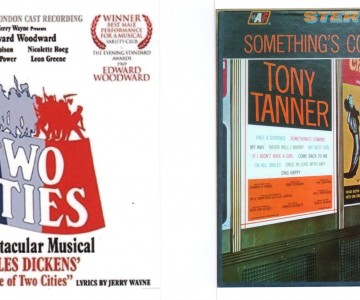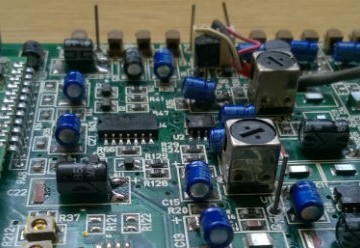01277 225316 info@audiorestored.com
¼’’ Reel-To-Reel Tape to CD | Audio Restored
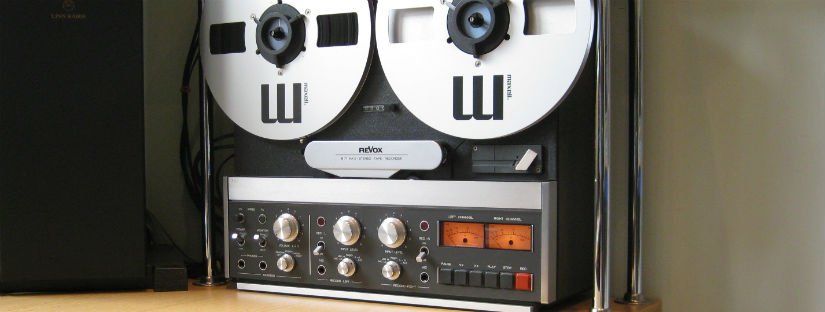
Prices (basic cost to transfer tapes + manual restoration as required)
| Domestic reel-to-reel tape (up to 7 inch reels) | £40 / hour of total playing time |
| Manual Restoration as required | £40 / hour of studio time |
| n.b. Reels found to be blank (or content not required) are chargeable | £10 / hour / reel |
| Baking only, of domestic 1/4″ tape (no digitisation) (3 inch to 7 inch reels) | £20 for 1 – 4 reels |
| 2-channel studio master reel-to-reel tape (up to 7 inch) (includes baking) | £35 / reel |
| 2-channel studio master reel-to-reel tape (10.5 inch) (includes baking) | £45 / reel |
| n.b. Reels found to be blank (or content not required) are chargeable | £15 / reel |
| Baking only, of studio 1/4″ tape (no digitisation) (7 inch and 10.5 inch reels) | £35 for 1 – 4 reels |
Sticky Shed Syndrome (SSS) and Tape Baking
Most reel-to-reel tapes that we receive for transfer to CD are found to be in perfectly good condition. Sometimes though, reels will arrive exhibiting signs of SSS – a noticeable ‘squealing’ sound as the tape is played, which is often accompanied by excessive wow and flutter and the shedding of sticky iron oxide particles on the record / playback heads and pinch roller. This is commonly due to the reels having been stored in less than ideal conditions (possibly extremes of temperature /dampness etc.) where the magnetic tape absorbs moisture from the air causing the break-down of the binder used to hold the magnetic particles onto the base film.
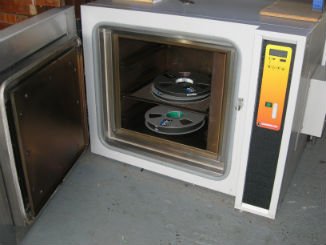 At Audio Restored, we use a ‘Carbolite’ laboratory oven supplied with the latest ‘type 301’ controller which is fitted with an over-temperature safety cut-out, to bake tapes suffering with SSS at a carefully controlled 55 degrees C for 24 hours. This technique drives out the moisture in a slow and controlled way, allowing us to retrieve and digitise the recorded content.
At Audio Restored, we use a ‘Carbolite’ laboratory oven supplied with the latest ‘type 301’ controller which is fitted with an over-temperature safety cut-out, to bake tapes suffering with SSS at a carefully controlled 55 degrees C for 24 hours. This technique drives out the moisture in a slow and controlled way, allowing us to retrieve and digitise the recorded content.
Be advised – never attempt to play any tapes exhibiting SSS – it may well destroy the tape and its recorded content. Contact us to discuss a solution.
Reel-to-Reel facts
- The Reel-to-reel tape format (also known as ‘open-reel’) was initiated in the late 1920s with the Anglo-German ‘Blattnerphone’, which was based on magnetisable steel wire passing across the heads from the supply spool to the take-up spool.
- This led on to the development in the 1930s of the ‘Magnetophon’, which was introduced by the German AEG company, and employed magnetic tape rather than wire.
- Early recordings tended to be disappointing, but considerable progress was made over the next 20 – 30 years in the formulation of the magnetic coating, which significantly improving the quality of the recordings.
1/4 inch open-reel tapes come in many formats but generally fall into two categories: “domestic” tape and “studio master” tape. Both types can have a variety of playing speeds and tape lengths, giving a range of playing times as indicated in the table:
Reel to Reel Tape Playing Times (hr:min)
| Reel Size | Length | Speed (ips) | ||||
| (inch) | (cm) | (ft) | 1 7/8 | 3 3/4 | 7 1/2 | 15 |
| 3 1/4 | 8 | 400 | 0:45 | 0:22 | 0:11 | |
| 5 | 12 | 600 | 0:60 | 0:32 | 0:16 | |
| 5 | 12 | 900 | 1:36 | 0:48 | 0:24 | 0:12 |
| 5 or 7 | 12 or 18 | 1200 | 2:08 | 1:04 | 0:32 | 0:16 |
| 7 | 18 | 1800 | 3:12 | 1:36 | 0:48 | 0:24 |
| 7 or 10.5 | 18 or 26.5 | 2500 | 4:24 | 2:12 | 1:06 | 0:33 |
| 10.5 | 26.5 | 3600 | 6:24 | 3:12 | 1:35 | 0:48 |
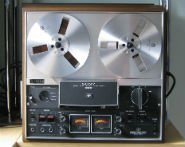
Sony TC377 Tape Deck
Domestic reels: Typical spool diameters are 3.25 inch, 4 inch, 5 inch, 6 inch and 7 inch. Usually the recording speeds are either 1 7/8 ips (inches per second), 3 3/4 ips or 7 1/2 ips and they are often quarter-track (4 track) mono or stereo.
Domestic reels are transcribed using either a Revox B77 deck or a Sony TC-377 deck for tapes running at 1 7/8 ips.
Occasionally we receive tapes running at 15/32 ips or 15/16 ips – these are speed-adjusted using software designed for the purpose.

Revox B77 Mk.II
2-Channel Studio Master reels: Typical spool diameters are 7 inch and 10.5 inch, and they are usually half-track (2 track) stereo recordings running at 15 ips or 30 ips.
1/4 inch Studio tape to CD transfer is performed using one of a pair of Revox B77 professional decks, catering for all speeds from 3 3/4 ips and above in both quarter- and half- track format. Digitisation can be performed at between 16 bit/44.1 kHz (CD quality) up to 24 bit/192 kHz – just let us know your preference.
Often, tapes are sent to us that are encoded for dbx type 1 noise reduction – these are decoded using an outboard dbx 150 type 1 NR unit.
Contact us to discuss your requirements fully.


